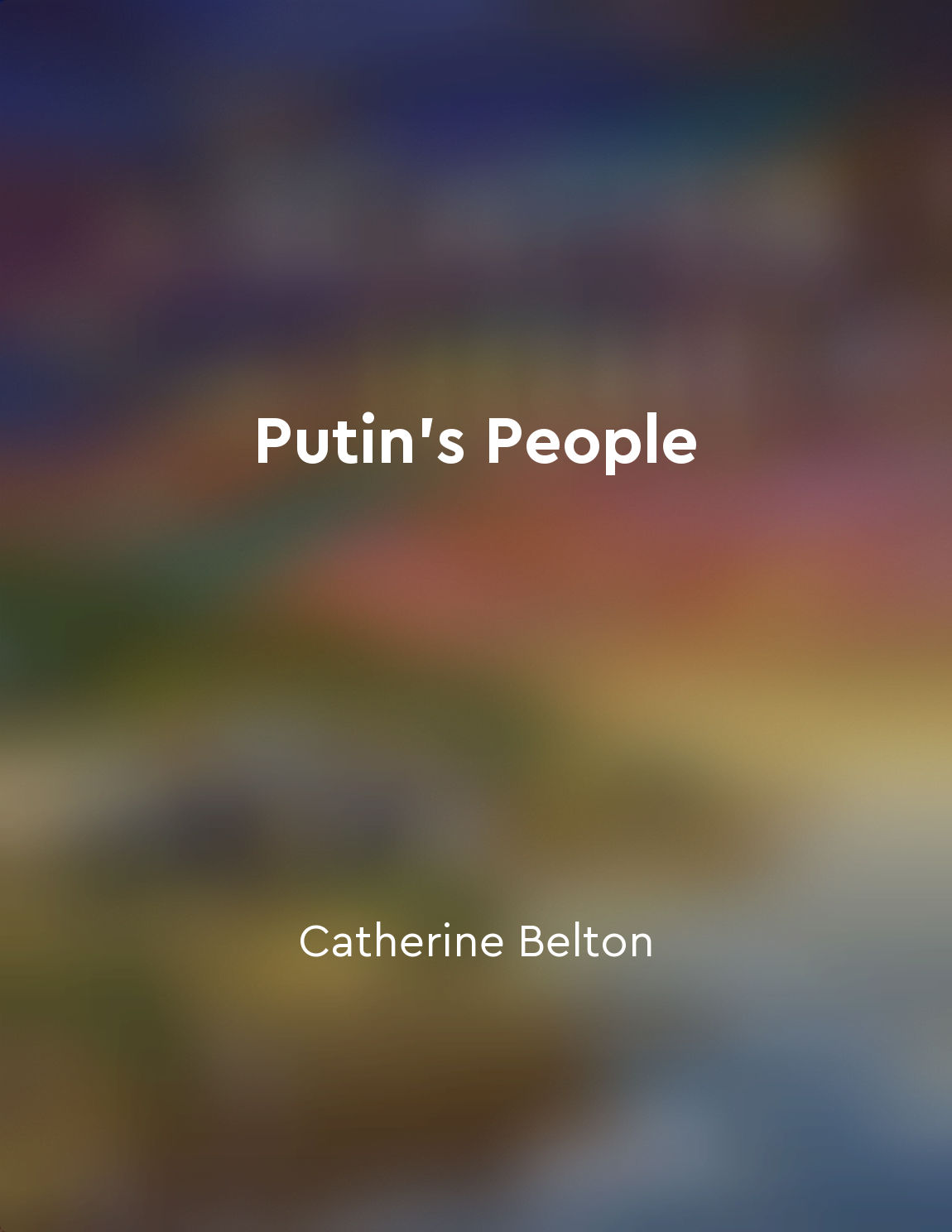The influence of Putin's inner circle extends into business, media, and politics from "summary" of Putin's People by Catherine Belton
The network of individuals surrounding Vladimir Putin does not just wield power within the political realm, but also exerts significant influence in the spheres of business and media. This inner circle, comprised of loyal allies and associates, has strategically positioned itself to control key sectors of the Russian economy, allowing them to amass immense wealth and consolidate their power. Through their connections to Putin, members of this inner circle are able to secure lucrative business deals, obtain valuable assets, and manipulate the legal system to their advantage. They have effectively created a system in which loyalty to Putin is rewarded with economic prosperity, while dissent is met with harsh consequences. In addition to their economic endeavors, Putin's allies have also extended their reach into the media landscape, ensuring that their narratives and interests are promoted and protected. By owning or controlling major media outlets, they are able to shape public opinion, suppress dissenting voices, and maintain a tight grip on the flow of information. Furthermore, the influence of Putin's inner circle extends beyond Russia's borders, as they use their wealth and connections to expand their reach globally. By investing in foreign companies, forming lucrative partnerships, and engaging in strategic diplomacy, they are able to further their own interests and strengthen Putin's position on the world stage.- The intertwining of business, media, and politics within Putin's inner circle serves to solidify their power and influence, allowing them to operate with impunity and continue to exert control over Russia and beyond. This network of individuals represents a formidable force that shows no signs of slowing down, as they continue to amass wealth, expand their reach, and protect their interests at all costs.


